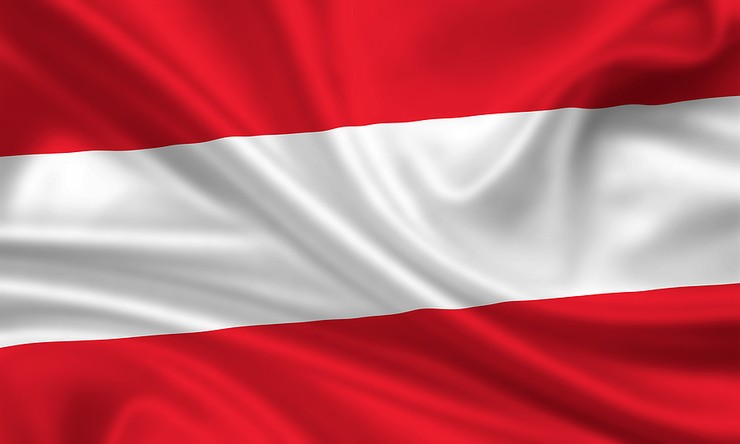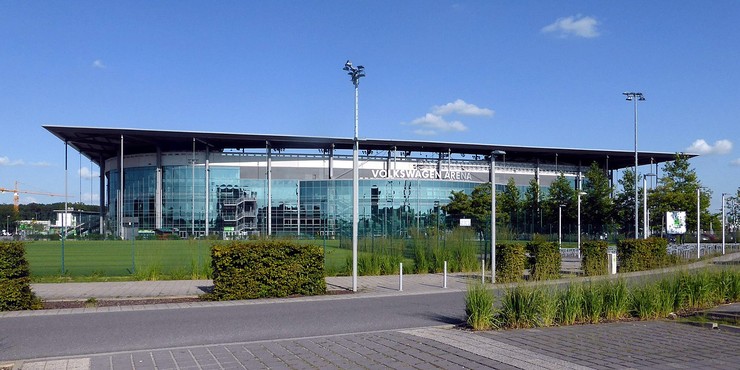The way Crystal Palace handled the entire situation around Roy Hodgson beggars belief in many ways and few managers can have essentially been sacked when in, or just out of a hospital bed; least of all by their boyhood club. And least, least of all by their boyhood club that they had twice saved from relegation.
However, we are not going to look at the end of Roy Hodgson’s time at Crystal Palace in this article and we’ll instead focus entirely on the new manager. Oliver Glasner may be familiar to hardcore football fans, computer game fanatics and those with a keen interest in German or Austrian football. However, to many around the world, he is virtually a complete unknown.
So, who is Oliver Glasner? What is his playing background and managerial career and what are the prospects for him delivering what the Palace board and supporters are hoping?
Oliver Glasner Quick Facts
Before we delve into his career more deeply, here are the basics:
- Born on 28th August 1974 in north Austria
- Made over 500 league appearances in defence in the Austrian first and second divisions with SV Ried
- Began management career with SV Ried
- Moved to LASK, also in Austria, then Wolfsburg and Eintracht Frankfurt in Germany
- Left Frankfurt after a poor campaign in 2022/23 with one year remaining on his contract
Oliver Glasner Playing Career

Glasner was a centre back who could also play in a holding role in midfield, though was only deployed there occasionally. At 5ft 11in he was not the biggest player in that position but was a solid and dependable type, comfortable using both feet and playing as either the left-sided or right-sided member of a pair.
He represented his country at Under 21 level on nine occasions but never quite made it as far as the full senior team. Barring a brief stint on loan at LASK (where he played just three league games), he spent his entire career as a footballer with SV Ried.
Ried were relegated from the Austrian Bundesliga (the top tier of Austrian football) in 2022/23 and are currently playing in the second division. During Glasner’s time there they were predominantly a top-flight outfit, although he played 101 games for them in the second tier, beginning there before helping them to promotion after the 1994/95 season.
They were subsequently relegated, which is when he joined LASK on loan, but after limited game time with the bigger club he returned to SV Ried and once again helped them to promotion. A club legend, he saw out the rest of his career there, though had to retire a little prematurely, albeit aged 36, after a head injury and subsequent brain haemorrhage in 2011.
As well as earning two promotions with Ried, a small club from Upper Austrian, whose stadium (the Josko Arena) holds fewer than 8,000 fans), he also twice helped them to the Austrian Cup. They lifted it in 1997/98 and again in 2010/11 and considering these are the only honours the club has ever won, his time there was in many ways a golden era.
Management Career

Glasner always seemed destined for a career of some sort in the dugout and was a natural leader. His playing career ended on the 23rd of August 2011 and began his coaching career shortly after, working under Roger Schmidt at Red Bull Salzburg in the 2013/14 season as one of the German boss’s assistants.
He then returned to his former club SV Ried for his first job as head coach and was a success. He guided them to a respectable sixth-place finish in the Austrian Bundesliga, albeit eight points adrift of a Europa League place. His win percentage was decent for a smaller club at 35.14% (based on 37 games) and he did enough to attract the attention of his other former side, LASK.
He took charge of the Linz-based outfit on the 1st of July 2015 when they were in the second tier and his four-year spell with the club was excellent. They won 94 of the 161 games (58.39%) he was in charge of and he was beginning to develop a distinct style of play. He won them promotion back to the Bundesliga in 2016/17 as they won the second-tier title by a massive 17 points, replacing SV Ried in the top flight.
His fine record, which saw LASK then finish fourth and qualify for a place in the Europa League qualifying rounds, began to attract the attention of even bigger teams. They improved further 12 months on, finishing second (to Austrian powerhouses Red Bull Salzburg) in 2018/19, losing just two games to make it through to the Champions League qualifiers.
Glasner Moves to Germany

Taking a team from the second tier to a runners-up finish in the Bundesliga and Champions League qualification is sure to have Directors of Football and owners taking note and on the 1st of July 2019, Glasner was appointed Wolfsburg boss. He led them to seventh and a place in the Europa League but as in his previous job, better was to follow.
Unfancied Wolfsburg had won the Bundesliga title back in 2008/09 but had only made the top four Once since then. However, in 2020/21, with Glasner at the helm, the Lower Saxony outfit made it back to the top four, winning half their games and losing just seven times to earn a spot in the Champions League group phase the following campaign.
Glasner would not lead them in the UCL, however, as he moved to Eintracht Frankfurt in May 2021. Frankfurth had finished a point and a place behind Wolfsburg so in some ways it was a strange move but Glasner has long shown an eye for the bigger picture.
His win percentage at Wolfsburg was over 47% but in his new job he landed the first serious piece of silverware of his managerial career. A slow start in Frankfurt had some fans wanting him gone but in the end they were rewarded with the Europa League trophy, beating Barcelona along the way. They went 13 games unbeaten in that competition and Frankfurt qualified for the Champions League for the first time in their history, though were just 11th in the league.
The following season they enjoyed their CL football and would make it out of their group too, before losing to Napoli in the last 16, but Glasner had really made his mark. They also made it through to the final of the German Cup but lost to RB Leipzig. However, their league form suffered due to their prolonged cup commitments and after they finished seventh the Austrian left the club with a year to go on his contract.
What are Palace Getting in Glasner?
On the face of it, Glasner seems like a good appointment, with his style of “vertical” football well suited to their counter-attacking players and pace. The English game is new to him, as is taking over midway through the season, but Palace should have enough to survive this term and then the former defender can start to shape the Eagles’ squad in the summer.
The new boss.#CPFC | #EVECRY pic.twitter.com/oYZSlEcGkv
— Crystal Palace F.C. (@CPFC) February 19, 2024
Glasner was in the stands for his new team’s 1-1 draw with Everton and there were signs of what he will bring. He likes to play with two defensive midfielders, ahead of a back three, plus attacking full backs and a front three that work closely together and quite narrow. He has generally improved all the clubs he has managed and at the age of 49 should be in his peak years as a coach.
Sometimes spiky, it remains to be seen how players and staff at Palace will take to him, and there is also a doubt over his ability to sustain success over a long period – at one club. He is very organised too and Palace fans, somewhat jaded by that aspect of Hodgson’s football, may not be happy if results aren’t good. That said, his style is more proactive than Hodgson’s and his team will seek to counter-press, with some suggesting he has much in common with Jurgen Klopp. Whether it will be enough to bring any level of success to Palace (or whether it is just a stepping-stone role for Glasner) remains to be seen.

